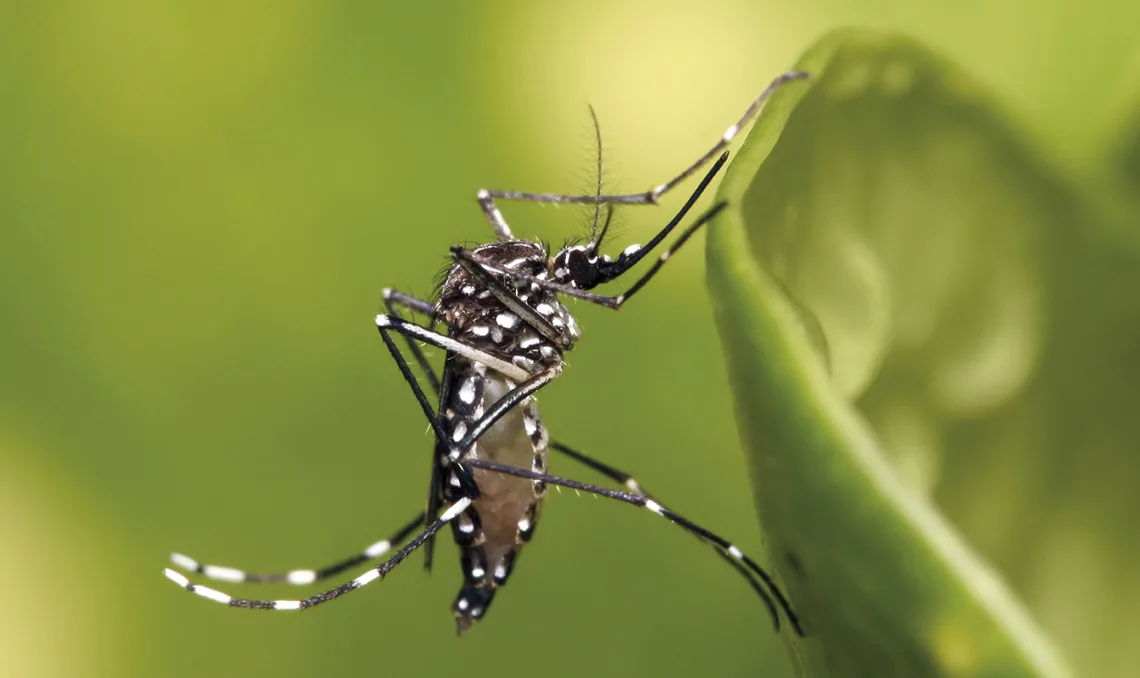As Pakistan experiences the after-effects of the monsoon season, combined with urbanization and poor sanitation, the country is witnessing a rise in mosquito-borne diseases, including dengue, chikungunya, Zika virus, and malaria. Health experts are sounding the alarm, highlighting the urgent need for action.
The World Health Organisation (WHO) has called for a unified global effort through its Global Strategic Preparedness, Readiness, and Response Plan (SPRP) to combat the growing threat of these diseases. Dengue, in particular, has seen a significant increase in Pakistan, especially in major cities like Islamabad, Lahore, Rawalpindi, and Karachi.
By August 2024, over 12.3 million cases of dengue had been reported globally, with Pakistan’s favorable climate—temperatures between 26-29°C and humidity above 60%—making it especially vulnerable. The Pakistan Meteorological Department (PMD) has confirmed that these conditions are ideal for the Aedes aegypti mosquito, the main vector for dengue, chikungunya, and Zika virus.
Health Authorities Take Action
The Islamabad District Health Office has intensified efforts to curb the spread by urging the public to eliminate stagnant water, which serves as breeding grounds for mosquitoes. Despite these measures, health professionals believe that many cases remain underreported. In Rawalpindi, more than 150 dengue samples are tested daily, though provincial data may not fully reflect the severity of the situation.
Chikungunya, a viral disease causing fever, joint pain, and skin rashes, is also spreading across the country. The National Institute of Health (NIH) reports over 250 cases per week, although the true numbers could be much higher due to the lack of widespread PCR testing.
In Karachi, concerns are rising over the detection of the Zika virus, a disease that poses severe risks for pregnant women, including birth defects like microcephaly. Although cases remain limited, swift action is required to prevent its spread.
WHO’s Global Response
The WHO’s SPRP emphasizes five key pillars for tackling vector-borne diseases: emergency coordination, surveillance, community protection, scalable healthcare, and improved access to treatments and vaccines. With the number of dengue cases nearly doubling since 2021, this global response is critical for Pakistan, where public health infrastructure is already under pressure.
This plan builds on previous WHO strategies, including the Global Vector Control Response 2017-2030 and the Global Arbovirus Initiative launched in 2022, both of which aim to address the growing threat of mosquito-borne diseases through innovative and sustainable approaches.
The Need for Urgent Action in Pakistan
Factors such as unplanned urbanization, inadequate sanitation, and the impact of climate change have exacerbated the spread of mosquito-borne illnesses in Pakistan. Monsoon rains leave behind stagnant water, providing an ideal breeding ground for mosquitoes, particularly in densely populated urban areas.
“The next few months are critical,” warned a spokesperson from the NIH, citing PMD data that suggests October will see an increase in outbreaks due to favorable weather conditions. The NIH has launched a public helpline (1033) to offer advice on preventing outbreaks, while provincial health authorities have issued advisories encouraging people to maintain clean environments and cooperate with fumigation efforts.
Protecting Public Health
Health officials are urging the public to take personal responsibility by using mosquito repellents, keeping their surroundings clean, and cooperating with efforts to eliminate breeding sites. As climate change and urbanization continue to accelerate, the threat from diseases like dengue, chikungunya, and Zika will only grow.
MosquitoBorneDiseases #DengueOutbreak #Chikungunya #ZikaVirus #PakistanHealth #ClimateChangeImpact #PublicHealth #WHO #DiseasePrevention #VectorControl #HealthHerald #DenguePakistan




+ There are no comments
Add yours